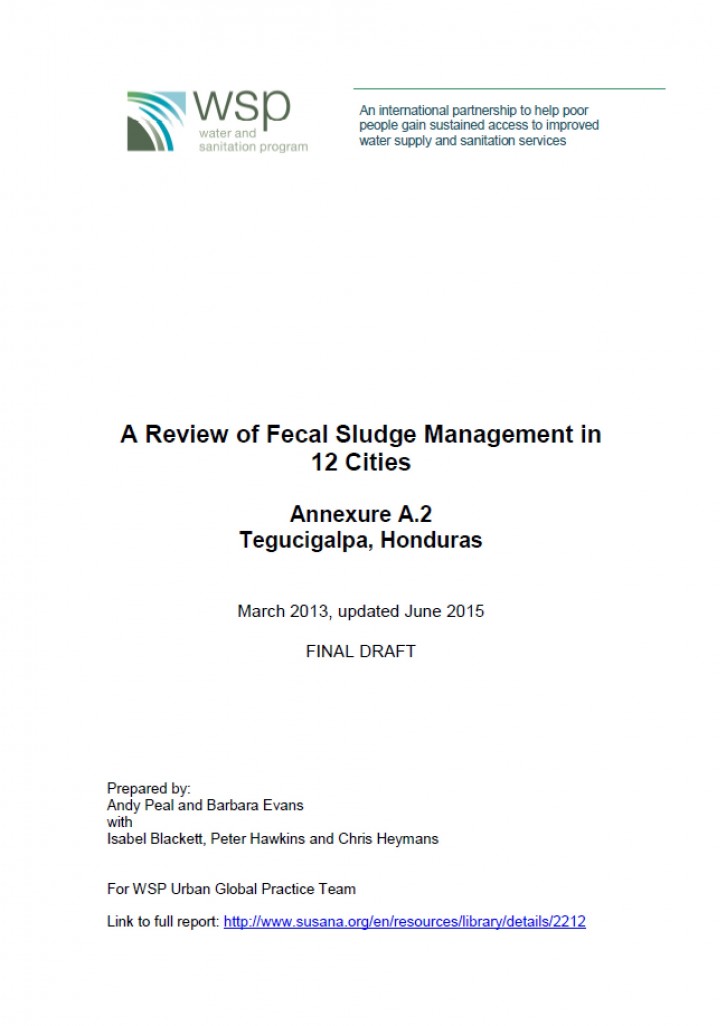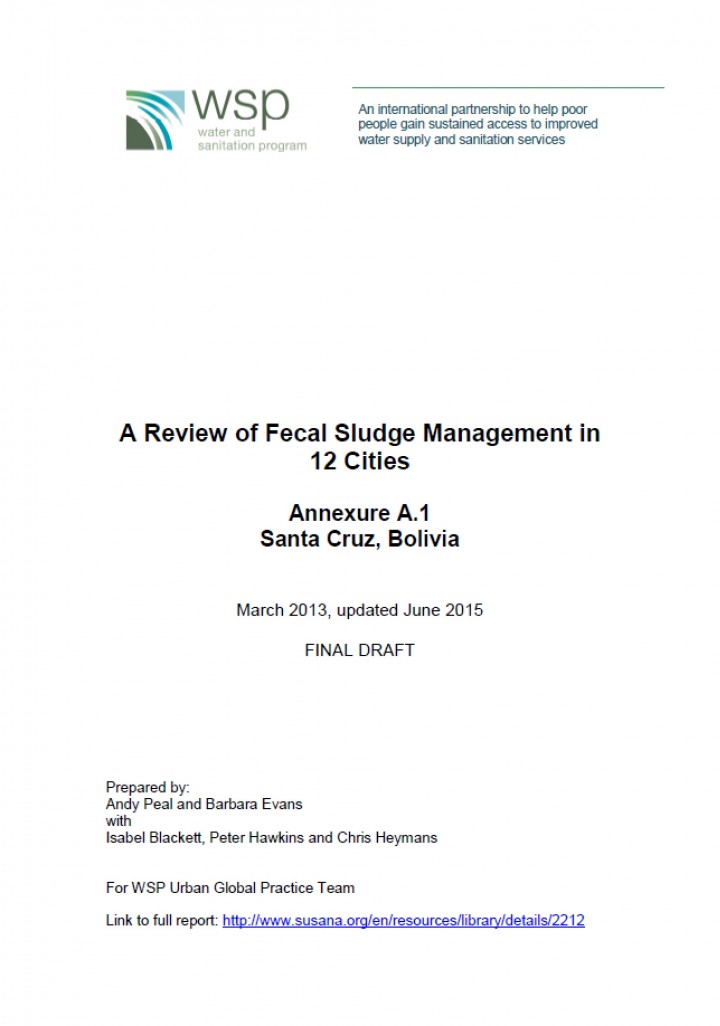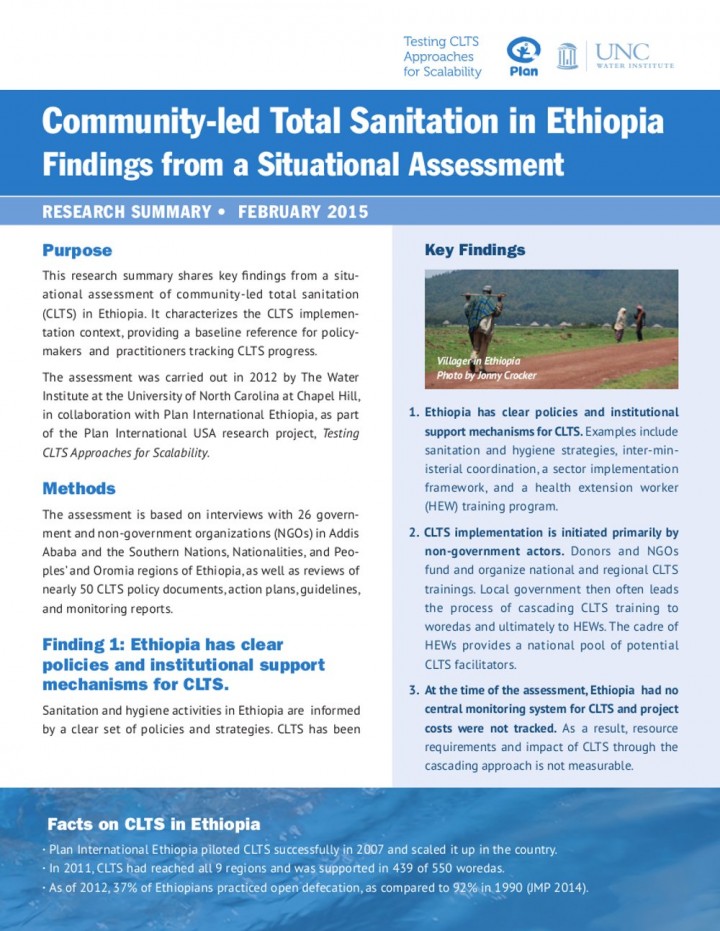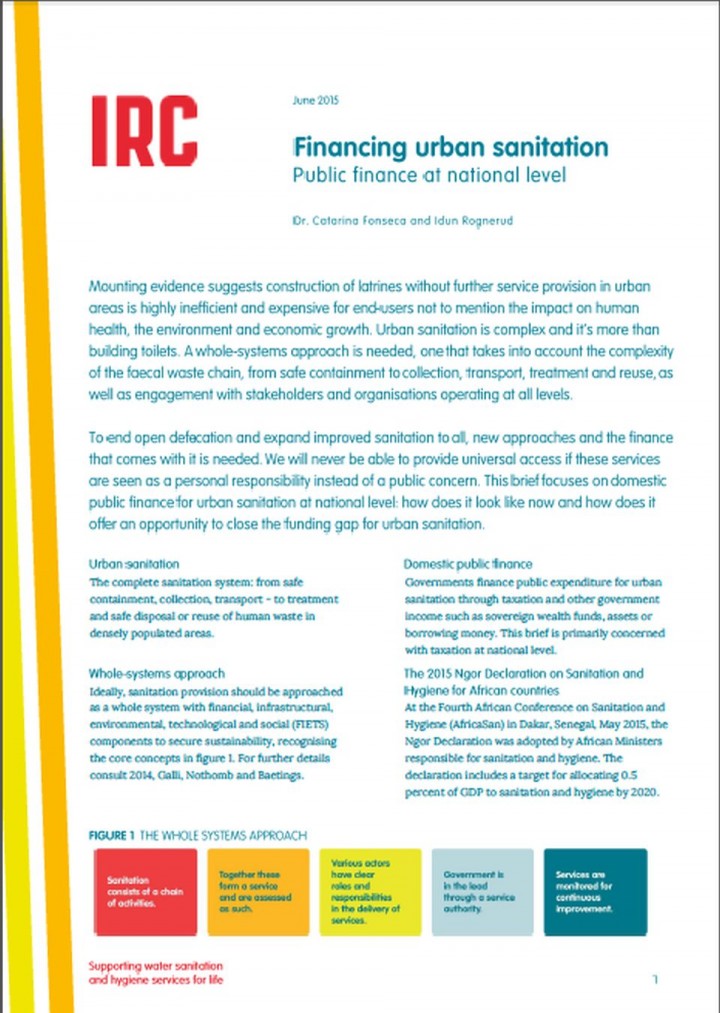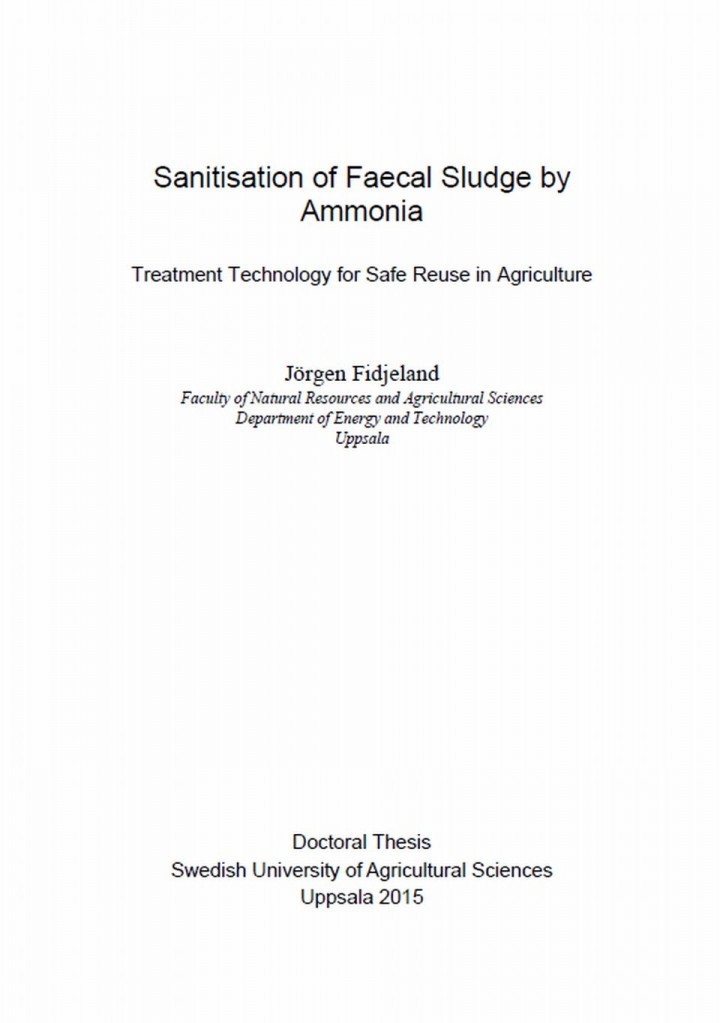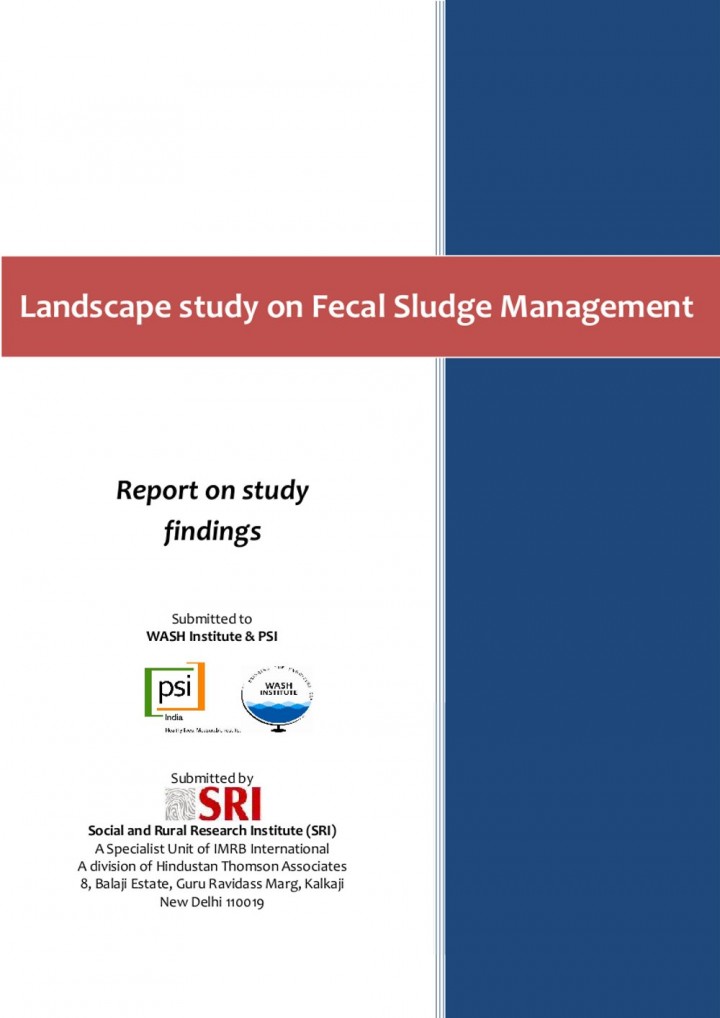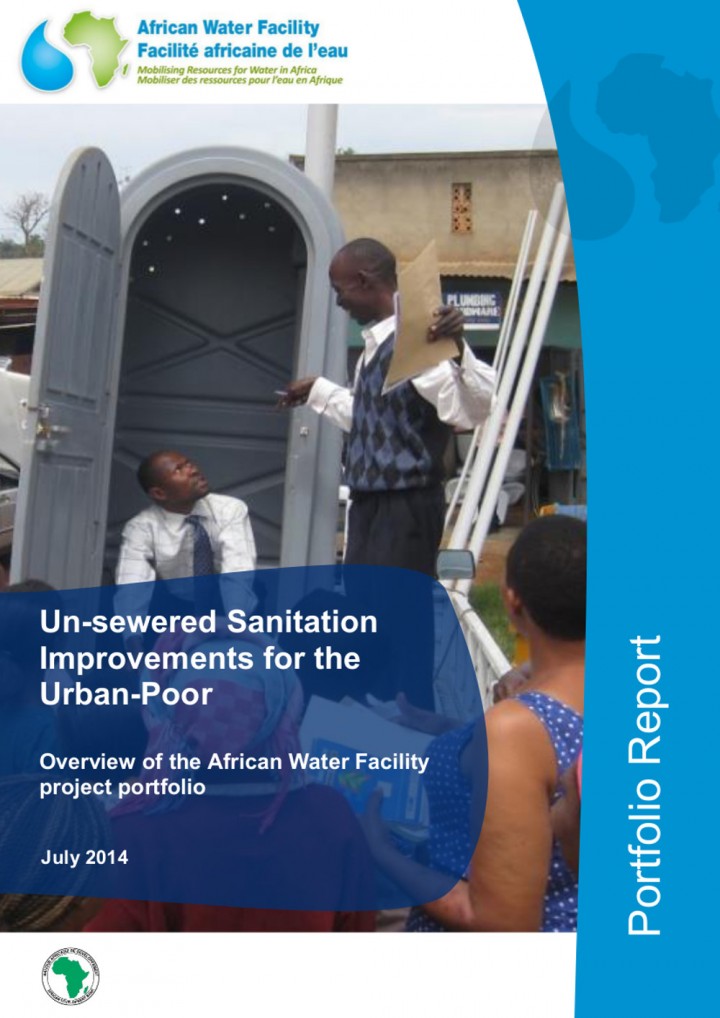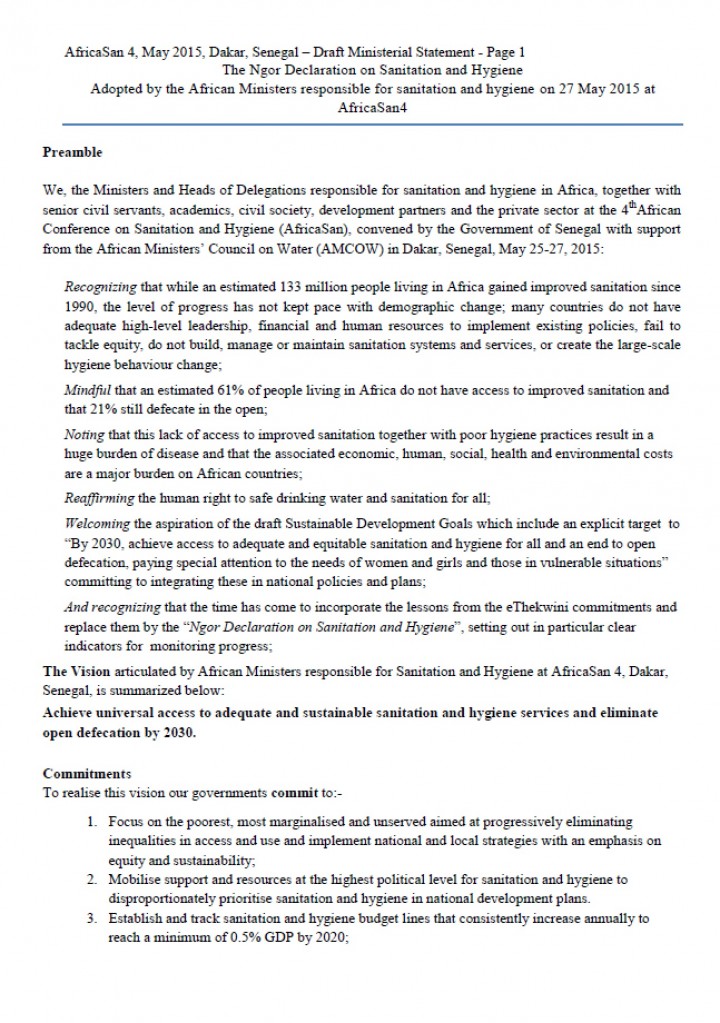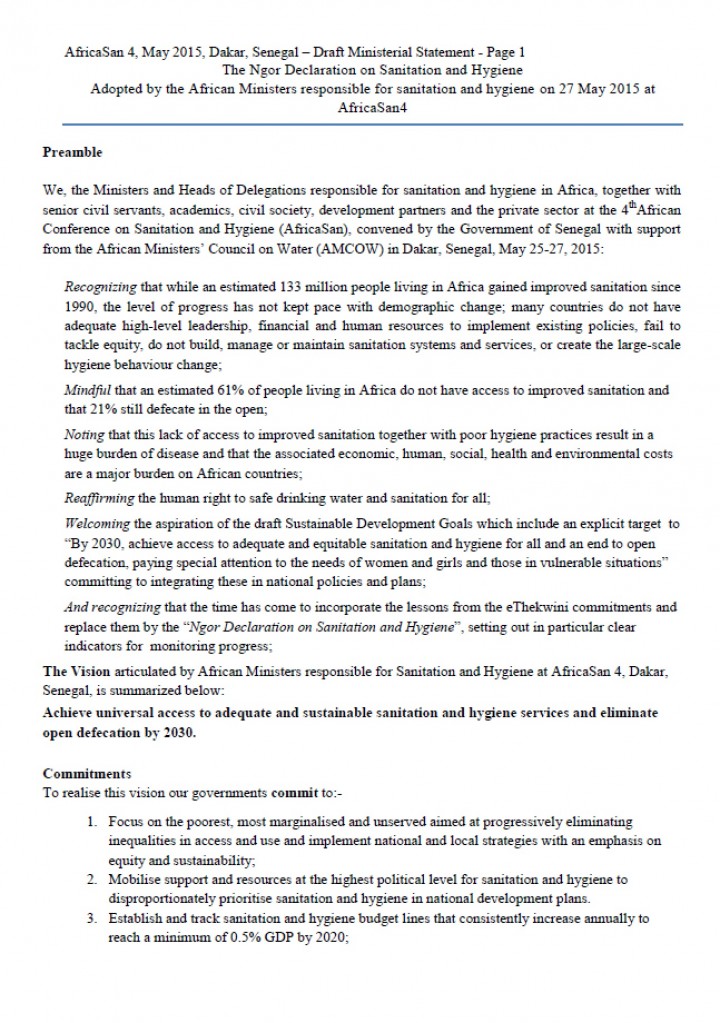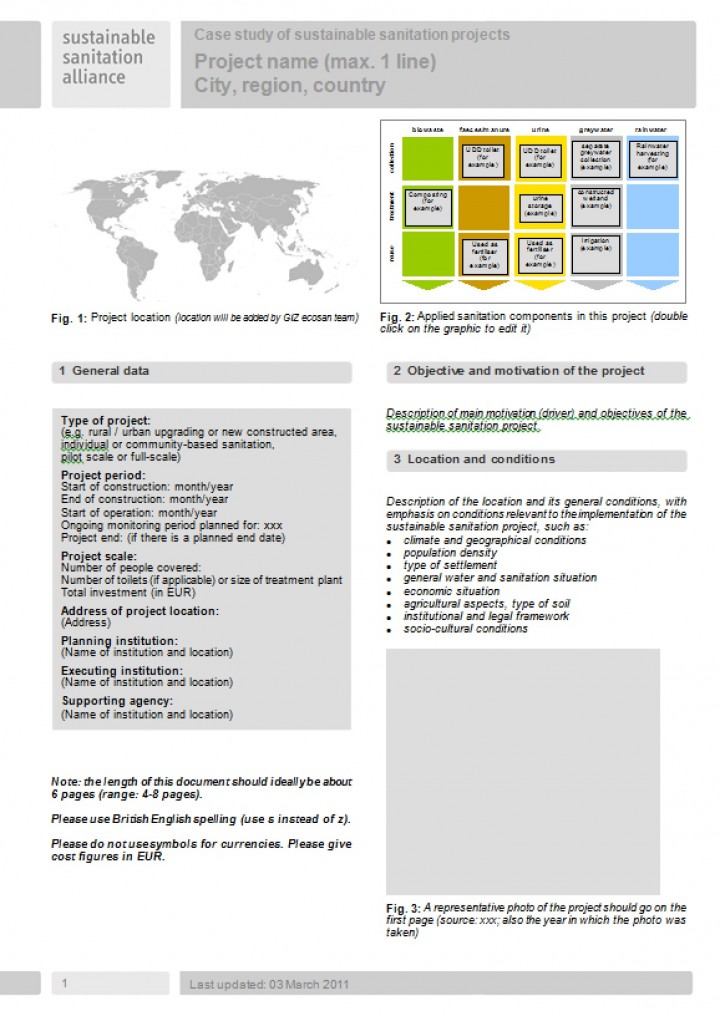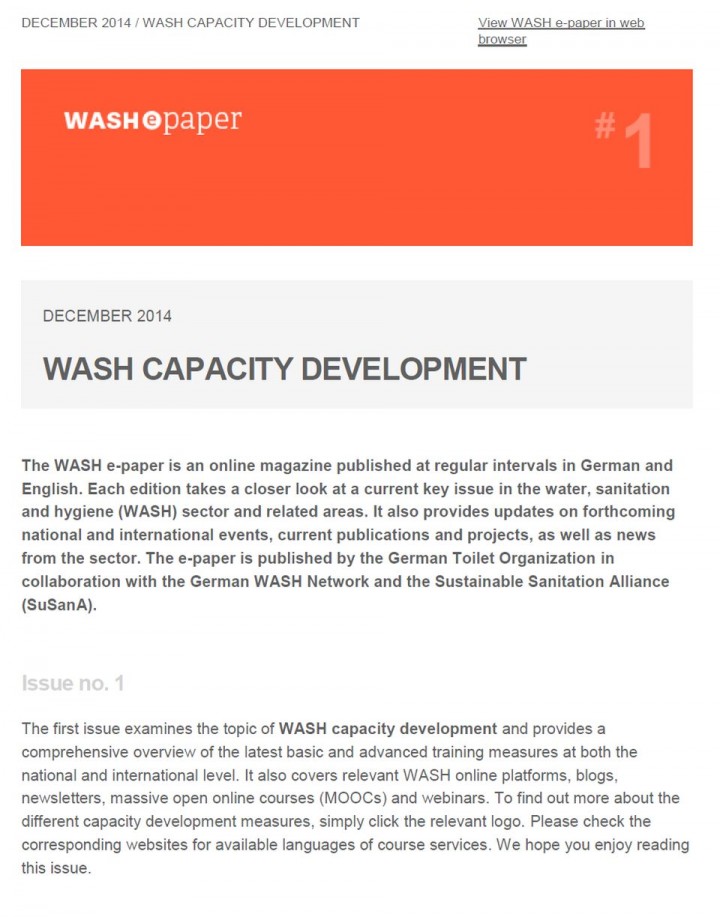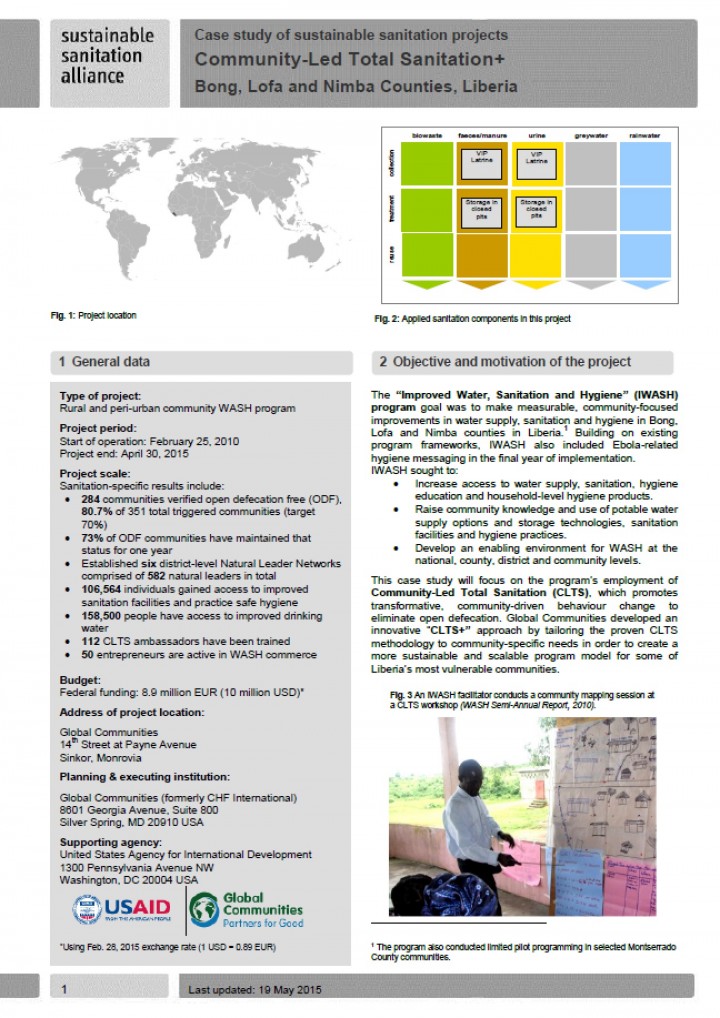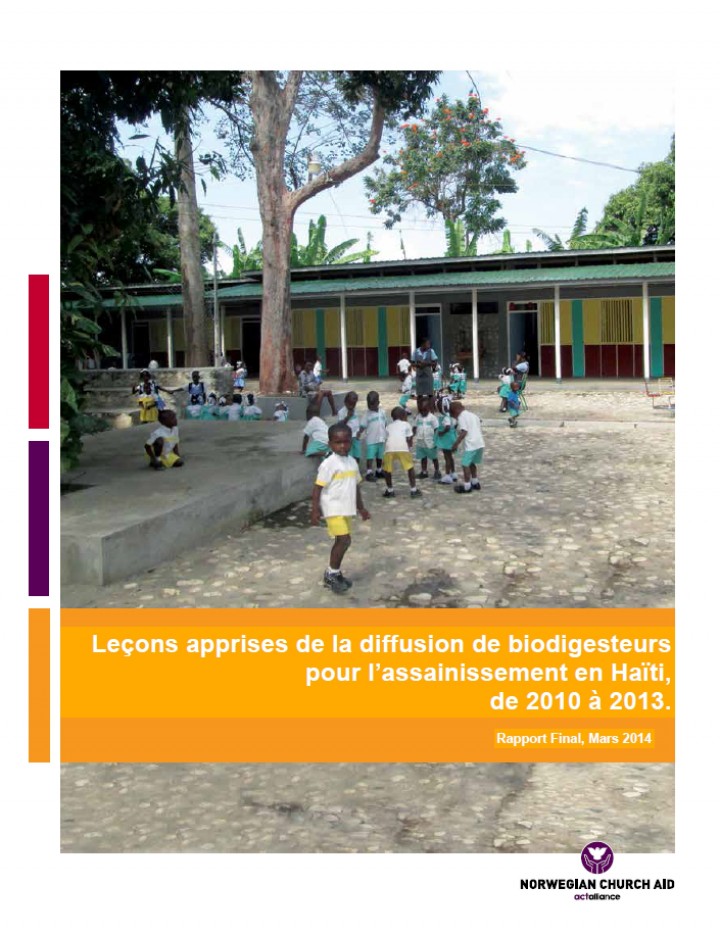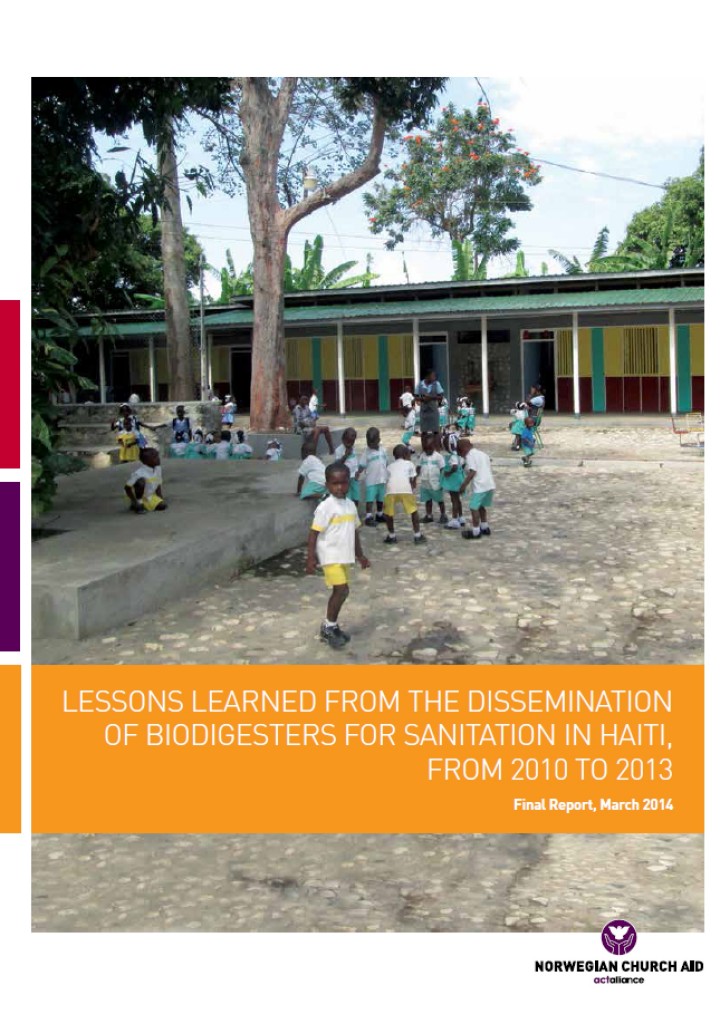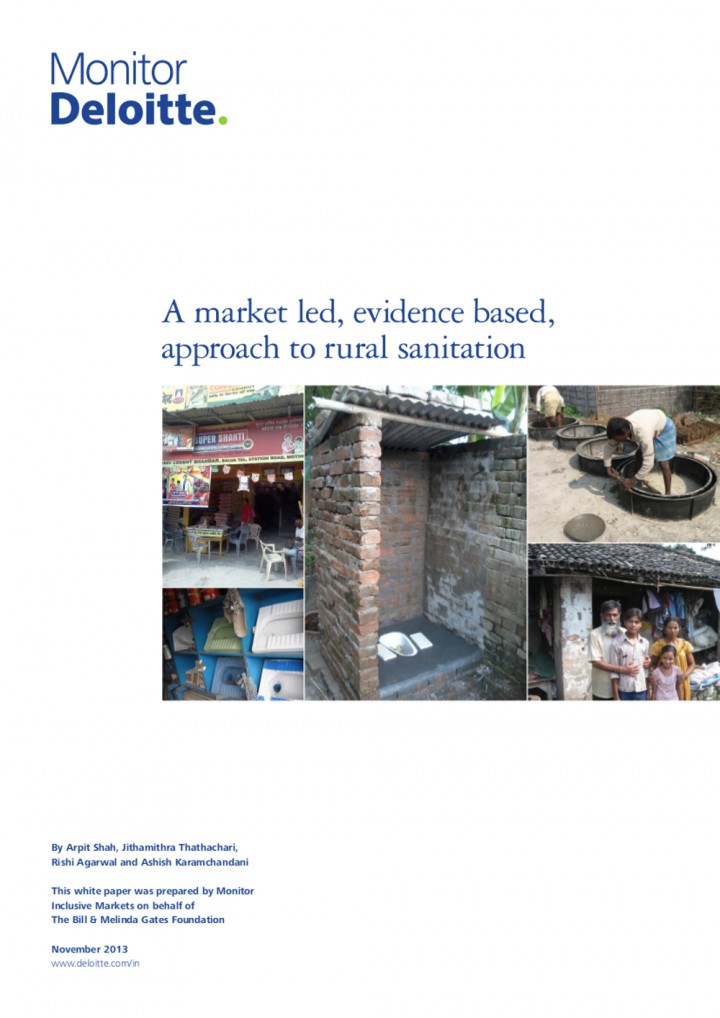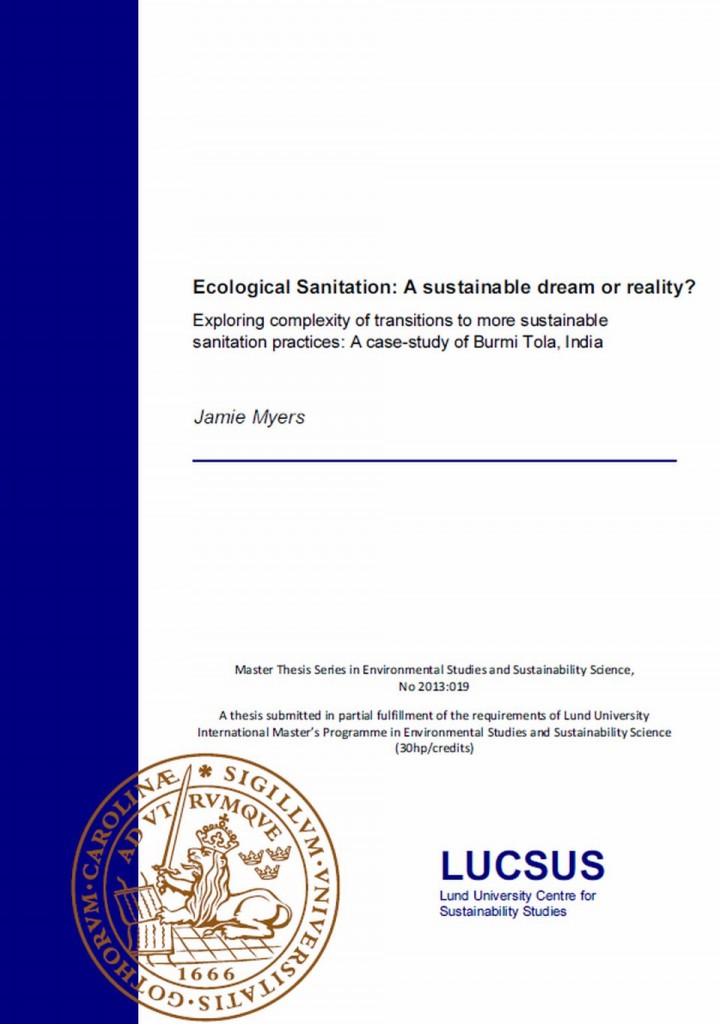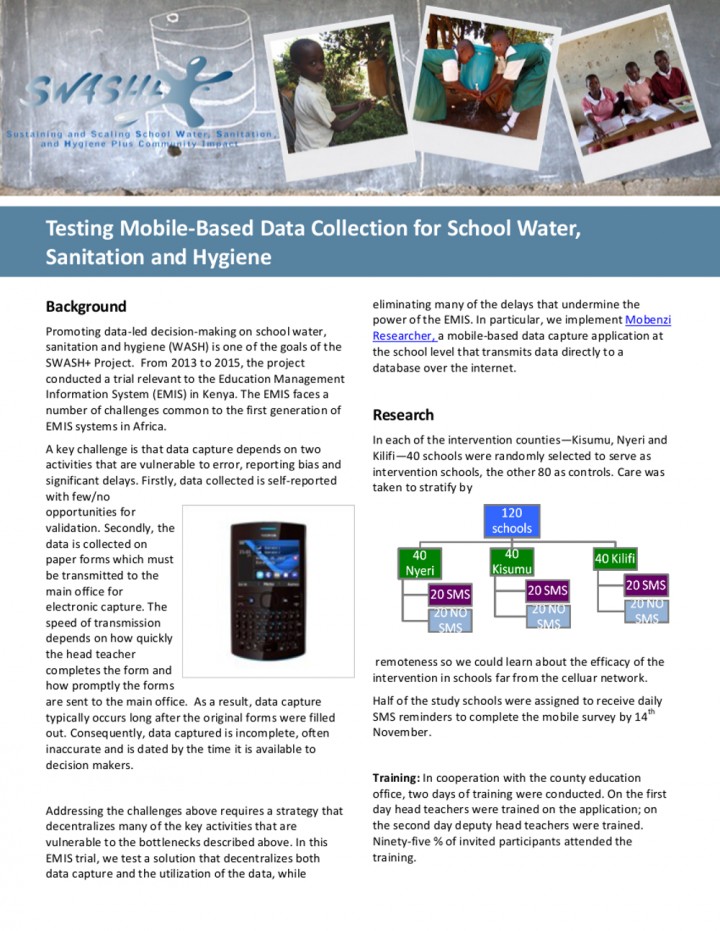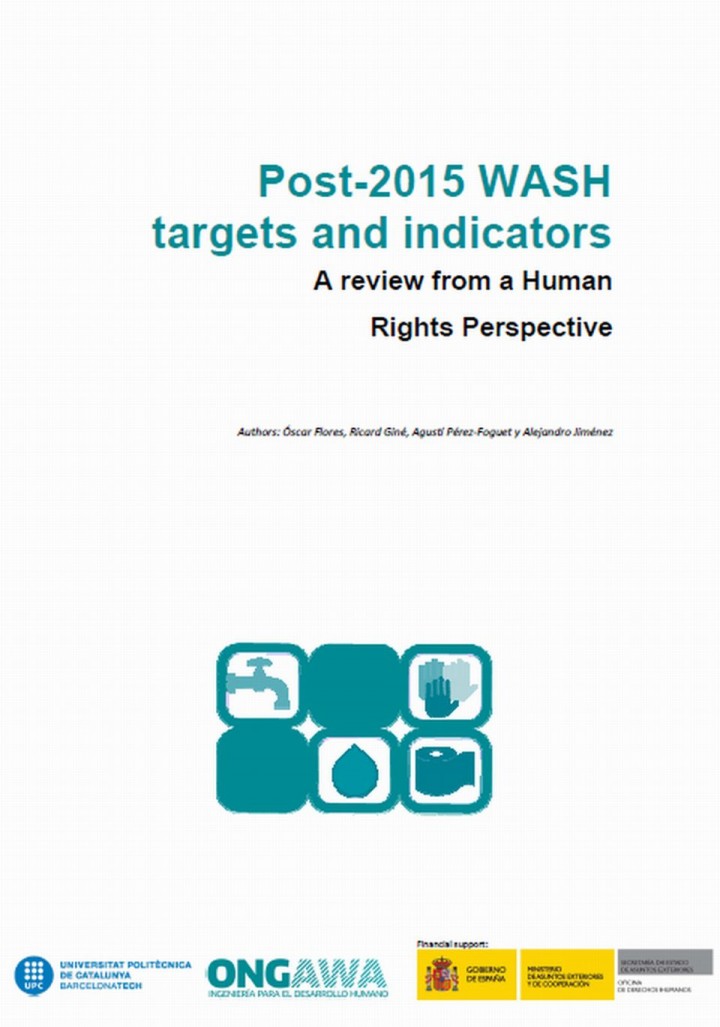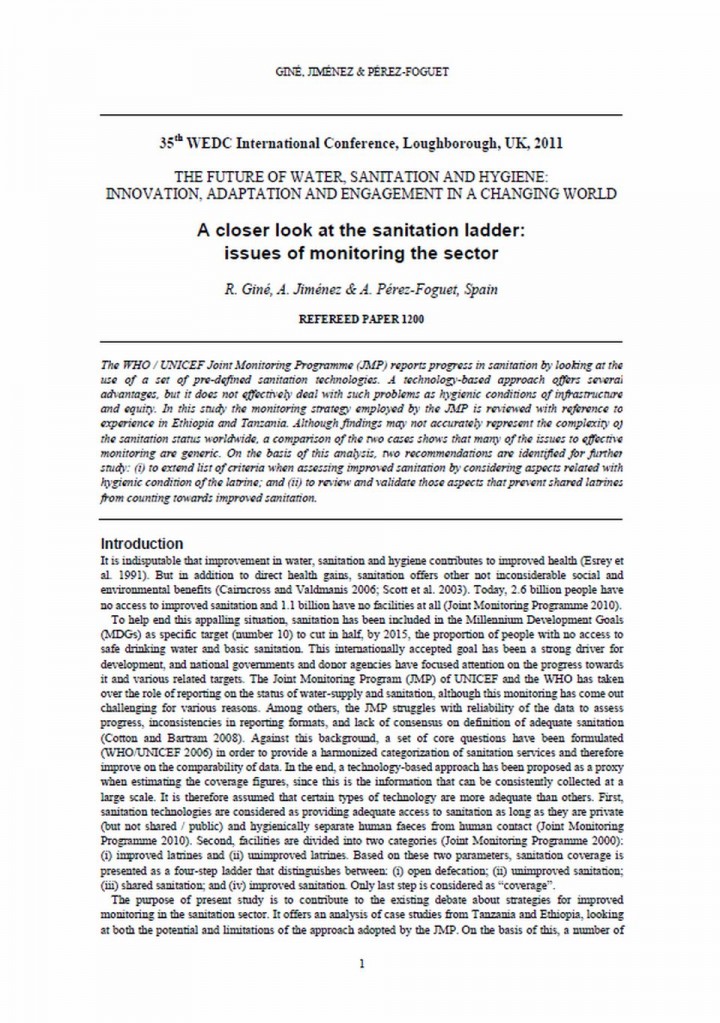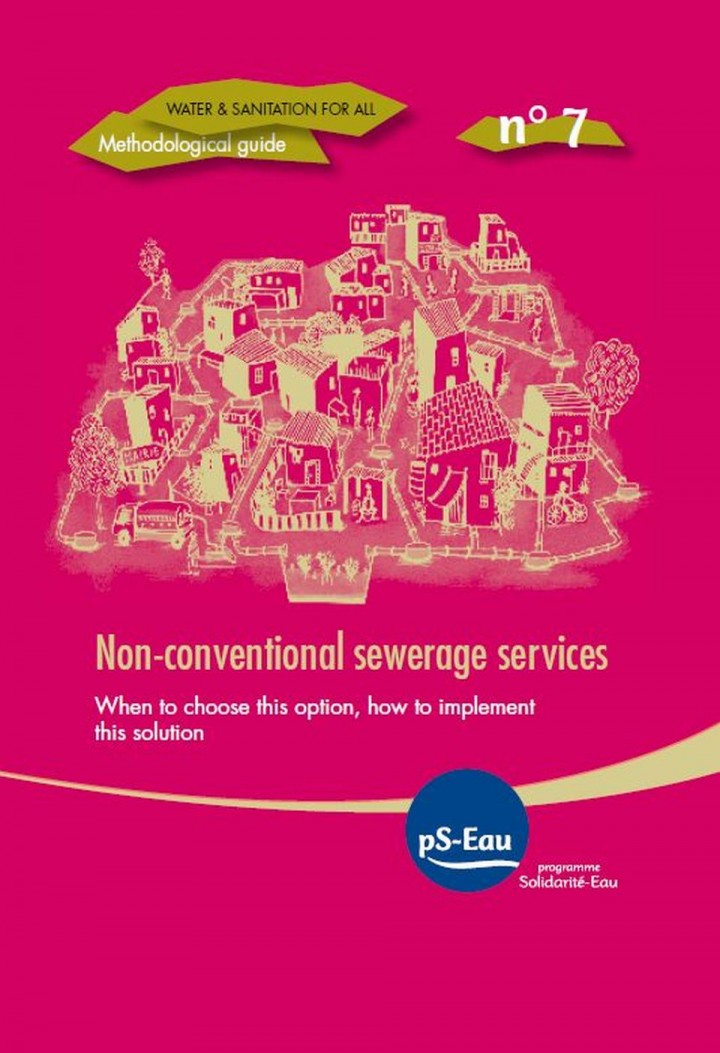Peal, A., Evans, B., Blackett, I., Hawkins, P., Heymans, C. (2015) A Review of Fecal Sludge Management in 12 Cities - Annex A.2 Tegucigalpa, Honduras Unpublished Report (Final Draft)
Peal, A., Evans, B., Blackett, I., Hawkins, P., Heymans, C. (2015) A Review of Fecal Sludge Management in 12 Cities - Annex A.1 Santa Cruz, Bolivia Unpublished Report (Final Draft)
Various authors (2015) Testing CLTS Approaches for Scalability Various documents on results from research grant
Fonseca, C., Rognerud, I. (2015) Financing Urban Sanitation Public Finance at National Level
Fidjeland, J. (2015) Sanitisation of faecal sludge by ammonia Treatment technology for safe reuse in agriculture
Faecal sludge contains valuable plant nutrients and can be used as a fertiliser in agriculture, instead of being emitted as a pollutant. As this involves a risk of pathogen transmission, it is crucial to inactivate the pathogens in faecal sludge. One treatment alternative is ammonia sanitisation, as uncharged ammonia (NH₃) inactivates pathogens. The aim of this thesis was to study how the pathogen inactivation depends […]
Various authors (2015) Project Prasaadhan - Business model development for fecal sludge management in rural Bihar Various documents on results from research grant
Various authors (2015) Municipal-supported unsewered sanitation improvements for the urban-poor Various documents on results from research grant
This library entry contains background documents for work that the African Water Facility is carrying out and which is co-funded by the Bill and Melinda Gates Foundation. Further information is also available on the SuSanA discussion forum, see link below. The purpose of the project is to improve the living conditions of the non-sewered urban-poor in Africa through provision of affordable and sustainable sanitation tools and technologies. +++++++++++ Documents […]
Ministres et chefs de délégation, en charge de l'hygiène et de l’assainissement de l’Afrique, ainsi que les hauts fonctionnaires, chercheurs, société civile, partenaires au développement et secteur privé (2015) Déclaration de Ngor sur l’hygiène et l’assainissement (in French) Ngor declaration about hygiene and sanitation
À la quatrième Conférence régionale sur l'hygiène et l'assainissement en Afrique (Africasan4) tenue du 25 au 27 mai 2015 à Dakar et organisée par le gouvernement du Sénégal avec l’appui du conseil des ministres africains de l’eau et l’assainissement (AMCOW), ministres et chefs de délégation, en charge de l'hygiène et de l’assainissement de l’Afrique, ainsi que les hauts fonctionnaires, chercheurs, société civile, partenaires au développement […]
Various Authors (2015) The Ngor Declaration on Sanitation and Hygiene Adopted by the African Ministers responsible for sanitation and hygiene on 27 May 2015 at AfricaSan4 (in English and French)
At the 4thAfrican Conference on Sanitation and Hygiene (AfricaSan), convened by the Government of Senegal with support from the African Ministers’ Council on Water (AMCOW) in Dakar, Senegal, May 25-27, 2015, the Ministers and Heads of Delegations responsible for sanitation and hygiene in Africa, together with senior civil servants, academics, civil society, development partners and the private sector signed visions and committments to achieve universal […]
SuSanA (2015) SuSanA Case Study template Word file for new SuSanA case studies
GTO (2014) WASH Capacity Development WASH ePaper, Issue No. 1 (in English, French, German, Spanish)
This ePaper is also available in French, German and Spanish (see below). The WASH e-paper is an online magazine published at regular intervals in German and English. Each edition takes a closer look at a current key issue in the water, sanitation and hygiene (WASH) sector and related areas. The first issue examines the topic of WASH capacity development and provides a comprehensive overview of the latest […]
Urban, A., Steen, A. (2015) Community-Led Total Sanitation+ (Bong, Lofa and Nimba Counties, Liberia) Case study of sustainable sanitation projects
Norwegian Church Aid (2014) Leçons apprises de la diffusion de biodigesteurs pour l’assainissement en Haïti, de 2010 à 2013 (in French) Rapport Final
Norwegian Church Aid (2014) Lessons learned from the dissemination of biodigesters for sanitation in Haiti, from 2010 to 2013 Final Report
Various authors (2013) Supporting sustainable sanitation improvements in Bihar through supply-side strengthening (3SI) Various documents on results from research grant
Myers, J. (2013) Ecological Sanitation: A sustainable dream or reality? Exploring complexity of transitions to more sustainable sanitation practices: A case-study of Burmi Tola, India - Master Thesis Series in Environmental Studies and Sustainability Science
Various authors (2015) SWASH+ Sustaining and scaling school water, sanitation and hygiene plus community impact
Flores, O. et al. (2013) Post-2015 WASH targets and indicators A review from a Human Rights Perspective
Giné, R., Jinénez, A., Pérez-Foguet, A. (2011) The future of water, sanitation and hygiene: Innovation, adaptation and engagement in a changing world A closer look at the sanitation ladder: issues of monitoring the sector
The paper builds on a combination of relevant literature Review and specific local experience from two case studies (one rural district in Ethiopia and one other in Tanzaniea). In each district, a data collection campaign was planned in collaboration with Partner institutions to illustrate Major issues. In Ethiopia (Bora District), data was collected during May 2010 by INGO Intermon Oxfam jointly with staff from the […]
Ily, J. et al. (2014) Non-conventional sewerage services / Services d'assainissement non conventionnels (in English and French) Methodological guide n° 7: When to choose this option, how to implement this solution
This document is available in English and French. The aim of this guide is to support contracting authorities, local decision-makers and their partners to develop their sanitation service by providing them with decision-making tools and practical methodological approaches. This guide will help these stakeholders determine whether non-conventional sewerage really is the most appropriate option for the area concerned. If this option is selected, it will also […]
